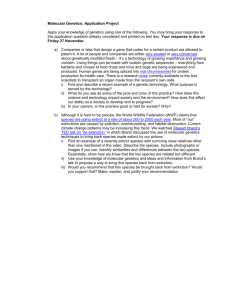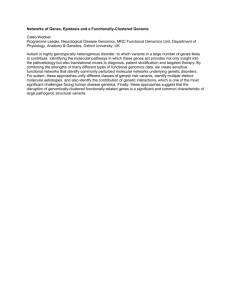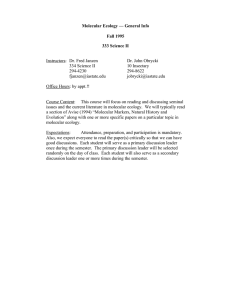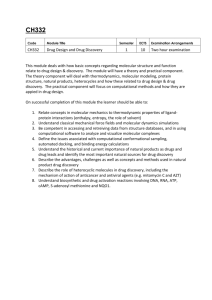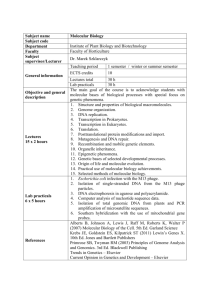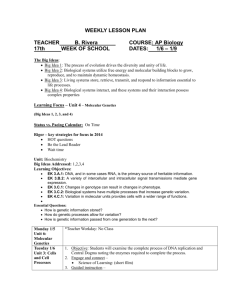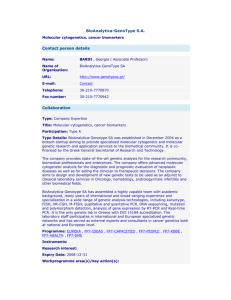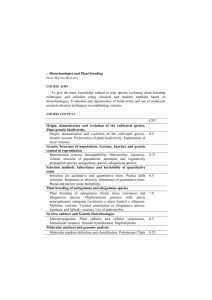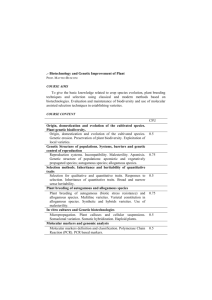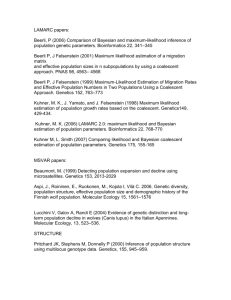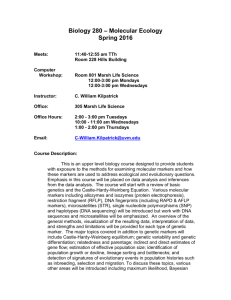COURSE DESIGN
advertisement
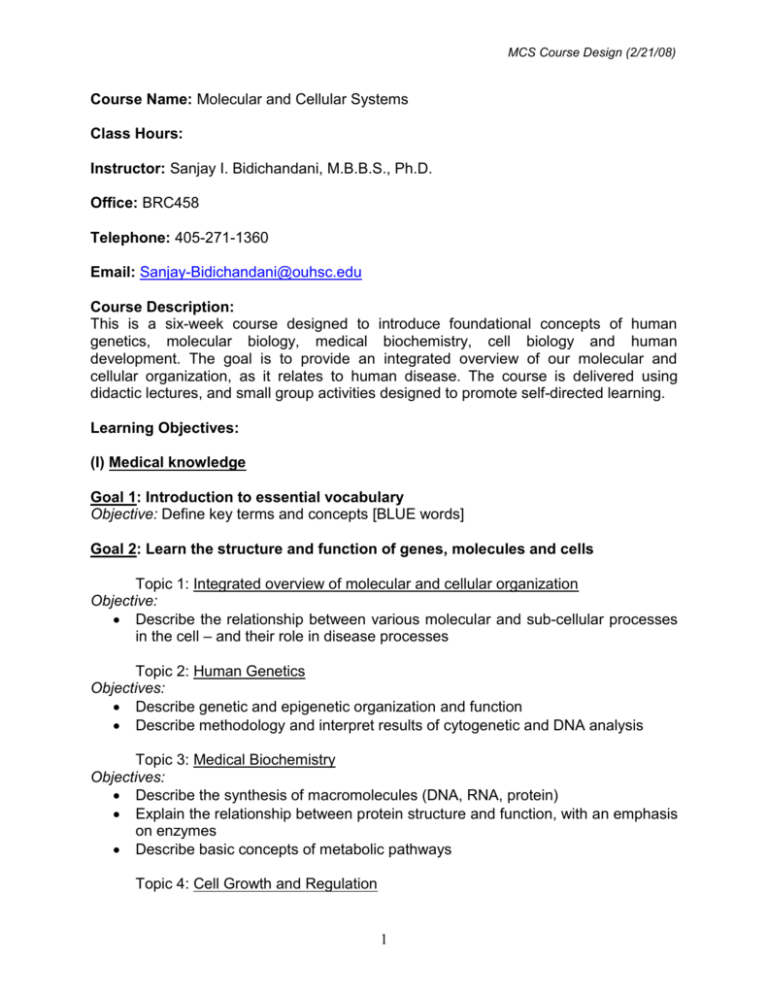
MCS Course Design (2/21/08) Course Name: Molecular and Cellular Systems Class Hours: Instructor: Sanjay I. Bidichandani, M.B.B.S., Ph.D. Office: BRC458 Telephone: 405-271-1360 Email: Sanjay-Bidichandani@ouhsc.edu Course Description: This is a six-week course designed to introduce foundational concepts of human genetics, molecular biology, medical biochemistry, cell biology and human development. The goal is to provide an integrated overview of our molecular and cellular organization, as it relates to human disease. The course is delivered using didactic lectures, and small group activities designed to promote self-directed learning. Learning Objectives: (I) Medical knowledge Goal 1: Introduction to essential vocabulary Objective: Define key terms and concepts [BLUE words] Goal 2: Learn the structure and function of genes, molecules and cells Topic 1: Integrated overview of molecular and cellular organization Objective: Describe the relationship between various molecular and sub-cellular processes in the cell – and their role in disease processes Topic 2: Human Genetics Objectives: Describe genetic and epigenetic organization and function Describe methodology and interpret results of cytogenetic and DNA analysis Topic 3: Medical Biochemistry Objectives: Describe the synthesis of macromolecules (DNA, RNA, protein) Explain the relationship between protein structure and function, with an emphasis on enzymes Describe basic concepts of metabolic pathways Topic 4: Cell Growth and Regulation 1 MCS Course Design (2/21/08) Objectives: Describe the processes of cell division (mitosis & meiosis), cell cycle, proliferation, and apoptosis Describe basic concepts of cell signaling Topic 5: Human Development Objective: Describe overall scheme of human development, recognizing the embryonic origin of organs and tissues Goal 3: Appreciate the role of genetic, molecular, and cellular dysfunction in disease states Topic 1: Genetic Basis of Human Disease Objectives: Describe the causes and consequences of genetic, epigenetic, and chromosomal defects Perform pedigree analysis and predict simple genetic risks Utilize the principles of population genetics to calculate genetic risks Understand the genetic basis of multifactorial disease Describe methods to prevent and treat genetic disease: population screening programs, prenatal diagnosis, and gene therapy Explain the genetic basis of cancer Topic 2: Biochemical Basis of Human Disease Objectives: Explain the relationship between molecular structure and function, and the roles of gain / loss of function in human diseases and therapeutic strategies Describe the role of molecular kinetics in diseases and therapeutic strategies Topic 3: Cellular Basis of Human Disease XYZ (cancer) Topic 4: Disorders of Growth and Development XYZ (common malformations) Goal 4: Recognize the concept of “systems biology” i.e., the human body is comprised of a complex set of molecular interactions Objectives: Recognize the network of molecular interactions: protein-protein, protein-gene, protein-RNA, and gene-gene interactions; genomics and proteomics; signal transduction; feedback systems Contrast the Garrodian and Oslerian views of disease (II) Skills for independent learning Objectives: 2 MCS Course Design (2/21/08) Access biomedical information from multiple sources Assess relative credibility of sources of information Recognize the concept and importance of the continuously evolving nature of biomedical information (III) Interpersonal and communication skills Objectives: Interact in small groups and contribute to in-class presentations and discussions Conduct of the Course: Format: A combination of didactic lectures (~60%), clinical correlations, TBL, reviews using the audience response system, self-study, in-class and take-home assignments. Assigned reading: (TBD) Assignments: (TBD) Examinations: Formative evaluations will be performed via online self-tests through the first five weeks of the course, followed by a final exam in the sixth week. Participation in other activities, such as TBL, may also count towards the final grade. Method of Evaluation and Grading: Grading scale Graded components and how they will be weighted Course Materials: Course Outline: 3
